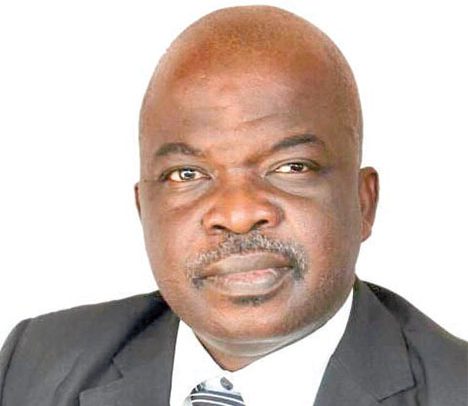Kwaku Ofori Asiamah
The Minister of Transport, Kwaku Ofori Asiamah says piracy continues to be high in the Gulf of Guinea despite progress made to reduce incidents of attacks on shipping in the West African sub-region.
He said the Gulf of Guinea has had “the unenviable title of a high-risk area” over the last decade due to piracy, armed robbery, and kidnappings at sea.
In a speech read on his behalf at the commemoration of World Maritime Day celebration in Accra, the Transport Minister indicated that the government was particularly concerned about the number of incidents of piracy and armed robbery in the Gulf of Guinea, especially about the increase in the number of incidents involving kidnapping of crew.
“Ghana is in the process of finalising a Harmonised Standard Operating Procedure (HSOP) for coordinating efforts of Maritime Law Enforcement Agencies at sea for quicker and coordinated response,” he disclosed.
“With Ghana as Chair of the Maritime Organisation of West and Central Africa (MOWCA), we shall spearhead the adoption of a regional instrument to combat this scourge as it transcends beyond any one-member state,” Mr. Asiamah stated.
On the welfare of seafarers, the minister said Ghana as a maritime nation would need to do its part to enhance the seafaring profession, and urged seafarers in the sub-region to remain vigilant.
He also said that “the last (2015) BIMCO/ISF survey predicted a shortfall of officers by the year 2025. Recruitment and retention could be seriously affected by the negative impact of the COVID-19 pandemic on seafarers.”
To this end, he said the Ghana Maritime Authority (GMA) would be tasked to prepare a programme for introducing the seafaring profession to students in High Schools in view of the Free Senior High School policy.
The Director General of GMA, Thomas Alonsi, stated that the GMA was taking steps to amend Section 481 of Act 645 so that Ghana’s maritime laws could fully adopt and incorporate the necessary International Labour Conventions.
In line with the recommendations of the United Nations and the International Maritime Organisation, he said Ghana has designated seafarers as essential workers, and is taking steps to ensure that as the government works hard to provide every Ghanaian with life-saving COVID-19 vaccine, seafarers are given priority treatment.
“This is the least we can do for our gallant seafarers on whose shoulders the shipping industry as it is now and its future prospects rests,” Mr. Alonsi said.
Chief Executive Officer of the Ghana Shippers’ Authority (GSA), Benonita Bismarck said the COVID-19 wreaked havoc in the maritime industry.
She said it has created enormous hardship for seafarers and brought crew-change crisis for ships, adding “this development has impacted not only the ship owner but has had far-reaching effect on shippers and consumers at large.”
In a speech read on her behalf, the GSA boss observed that another serious development that was affecting the seafarer directly and generally the cost of shipping is the piracy menace.
“These two notable developments have resulted in the high freight charges that we have been witnessing over the past one year or so,” she noted.
By Ernest Kofi Adu


